
Norway-flagged Front Altair ablaze in the Straits of Hormuz, June 13, 2019
Source: Iranian Students’ News Agency, ISNA, via Associated Press
“. . . there is a tendency in many armies to spend the peace time studying how to fight the last war.”
Lieutenant Colonel J. L. Schley, US Army Corps of Engineers, The Military Engineer (1929)
The domestic press continues to expend excess ink portraying Trump as unhinged. What’s underplayed is that it’s not just the US that has a nut in charge. The increasingly bizarre behavior of national governments (and their proxies) means that the diplomatic playbook doesn’t work anymore. I’m not alluding to China’s theft of NSA hacking tools, or the CIA’s planting malware in Russia’s power grid (and announcing it in the press, no less: see NYT hacking Russia’s grid), or even Iran’s Revolutionary Guard removing (after placing?) limpet mines from oil tankers in the Straits of Hormuz. I’m talking about charlatans and criminals running dozens of countries, with Venezuela perhaps the prime example.
China appears in the daily headlines, mainly because of the trade war, but is largely ignored when it comes to state-sponsored IP theft and information theft. China knows it can’t defeat the US in a conventional war fought anywhere other than on home soil, but it’s going toe-to-toe on the espionage front. Huawei Technologies is the poster child for China’s emergent multinational corporations. Along with low prices, Huawei’s customers should expect to be spied on. That presents an uneasy tradeoff in those countries where Huawei is still allowed to sell telecoms switches. I suspect the US is largely to blame for this ambivalence, particularly after Edward Snowden’s damning exposé of the NSA in 2013.
Last week I returned to Singapore after six weeks crisscrossing the US and South America. It was a great trip and I strongly recommend you visit Peru, Chile and, especially, Argentina while the currency is weak and the entire country is more-or-less on sale. However, there are plenty of rogues no matter where you go these days, and down below I list the travel potholes we encountered.
On that just-concluded sojourn I read Don Winslow’s Power of the Dog, The Cartel and The Border. These novels trace the rise of the Sinaloa Cartel, the subversion of Mexico’s government and the ambivalent role played by the US government and sundry alphabet agencies. Winslow is a conspiracist of a different flavor to me, but if you liked Narcos and Narcos Mexico (or for that matter the Sicario movies), you’ll likely find the trilogy excellent summer reading.

Source: Amazon.com
Followers of the MH370 saga—the event that launched the True Lies newsletter and www.bradleywest.net four years ago—need to check out a lengthy five-year retrospective in The Atlantic. (See Malaysia Airlines Atlantic 2019 June.)
Now it’s time to put the shoulder to the wheel and start on the next novel.
Bradley West
Singapore, June 18, 2019
YOU CAN’T NEGOTIATE WITH A NARCO STATE
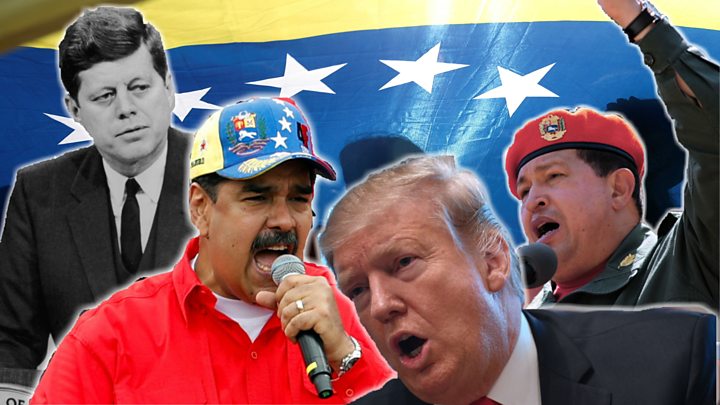
JFK, Nicolás Maduro, Trump and Hugo Chavez
Source: BBC.com, Venezuela crisis: Guaidó ridicules ‘civil war’ threat, Feb 4, 2019
Venezuela president Nicolás Maduro remains in power because there aren’t enough honest politicians left for the US to back in a coup. If that sounds extreme, consider that Venezuela’s GDP fell by over fifty percent since 2014 and over ten percent (three million-plus) citizens have fled. In 2018 Maduro and his cronies earned over three billion dollars on illegal gold mining and an even larger sum allowing planes with 265 tons of cocaine worth $39 billion to transit the country. Researchers dub the multi-country web of criminals and pols the “Bolivarian Joint Criminal Enterprise” (see Maduro’s Last Stand: Venezuela’s Survival Through the Bolivarian Joint Criminal Enterprise by D. Farah and C. Yates, May 2019, Maduro’s Last Stand) while the locals refer to it as the “Cartel of the Sun.” (See The Real Reason Venezuela’s Maduro Survives: Dirty Money by J. Diehl, Washington Post, May 13, 2019, Cartel of the Sun.)
Apparently, there’s almost no one at Venezuela’s national political level who isn’t tainted by corruption charges. This means that US’s normal formula for changing a government won’t work: there simply aren’t enough competent administrators to staff a transitional government ahead of fresh elections. Offering amnesty to Maduro’s cronies who have banked tens of millions each also seems a flawed solution that sends the wrong signal to slightly less-bad kleptocracies elsewhere.
The problem isn’t confined to Venezuela, either. Maduro’s predecessor Hugo Chávez used oil money to promote the “21st Century Socialism” program at the heart of the “Bolivarian Revolution” to oppose US influence across Latin America and in the Caribbean. After taking power in 1998, Chávez’s stated goal was to create a political union among Venezuela, Colombia, Ecuador, Peru, Bolivia and Panama. Instead, Chavez helped finance the election of like minded leftist populists in Ecuador, Nicaragua, Bolivia, Honduras and El Salvador. He also built ties to presidents Lula in Brazil and Kirchner in Argentina.
What resulted was less a political union than the forebearer of a global criminal network anchored in narcotics trafficking and illegal gold mining. Proceeds are laundered through fraudulent oil sales and phony currency trading. Movie fans will recall Hyman Roth’s boast in The Godfather II that the mob was “Bigger than US Steel.” Today, the Cartel of the Sun, too, is huge, comprised of over 175 companies operating in twenty-six countries with the common thread of Venezuelan criminality. Meyer Lansky would be proud.
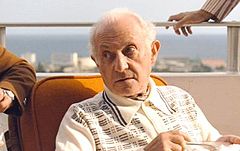
Hyman Roth’s birthday party, Havana 1959
Source: Wikipedia
If you’re in the State Department and the White House wants a change of government in Venezuela, what do you tell them? “I’m sorry, Mr. Mulvaney, but there’s no one available who will take our call.” One Venezuelan activist interviewed by the Washington Post suggested a novel idea: the US should stay out of it and let the Venezuelans determine their own fate. Maduro and his thugs are deeply unpopular, and with any luck will end up swinging from Caracas lamp posts. But asking the US not to interfere in Latin America is like asking a dog not to lick his balls. I’m not holding my breath.
HUAWEI: THE US SENDS A MESSAGE TO CHINA
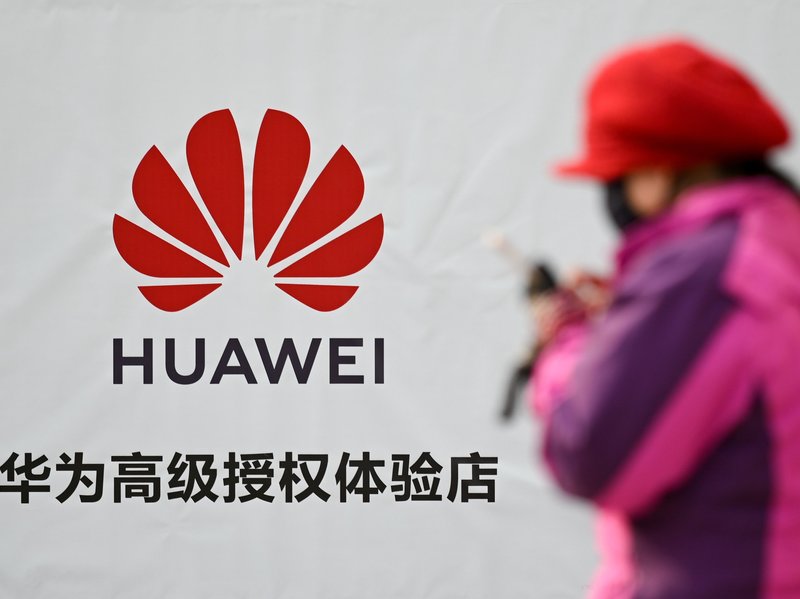
Huawei storefront, Beijing
Ref: Alexander Bibik/Reuters
Huawei Technologies is a Shenzhen-based global powerhouse in wireless telecommunications infrastructure and handphones. The last ten years, annual sales increased from $20 billion to $120 billion, with less than half of revenues sourced from China. Huawei now enjoys over a thirty percent market share in wireless telecoms capital goods, making it the world’s top supplier. In mid-2018, Huawei surpassed Apple to trail only Samsung in global cell phone sales with just under twenty percent share. R & D expenditure exceeded $15 billion in 2018 to occupy the fourth spot globally and vault Huawei ahead of Microsoft, Apple, Intel and Cisco. At the same time, Japan, Australia, New Zealand and the US have banned Huawei from bidding on government contracts. The UK and Germany may follow suit, with BT removing in December 2018 already installed Huawei equipment from of a new comms system serving the UK’s emergency services.
This paradox illustrates the ambivalence the West feels towards China manufacturers: consumers (and corporates) love the lower cost, even if it comes with blemishes (e.g. created with prison labor or stolen intellectual property), and in Huawei’s instance allows the Ministry of State Security to tap into cellular networks.
That most governments worldwide continue to allow Huawei to bid on national contracts reflects not only the appeal of lower prices, but also the decreased regard in which notional allies view the US. Edward Snowden’s 2013 revelations of the extent of the National Security Agencies all-encompassing surveillance of friends and foes led many to lump the world’s two economic superpowers into the same category. The thinking goes that, since the NSA already has tapped [Country’s] telecoms networks, is it really that big of a deal if China may be doing the same thing? That wouldn’t have been the case back in the day when the US was the good guy and China (and Russia) wore the black hat. Now everyone is attired in shades of gray.
Little Doubt that Huawei is Beholden to the State

Founder Ren Zhengfei, Huawei Technologies
Source: China Daily
Huawei is privately held with unknown shareholders. On paper, founder Ren Zhengfei owns one percent of the company and Huawei’s labor union holds the balance. On closer inspection, the Union of Huawei Investment & Holding actually owns profit participation shadow equity with zero governance rights. The in-house union doesn’t even lobby for better employee wages or working conditions. Instead it mostly occupies itself with running Huawei’s in-house ping pong, basketball and badminton clubs. With no operating authority and no power to appoint board members, the union is a front with nothing to do with the financing or control of the company.
The only logical conclusion is that an arm of the People’s Liberation Army (where Ren worked as an engineer) and/or a for-profit subsidiary of China’s Communist Party funded the company’s growth and calls the shots from behind the curtain. The preceding is my conclusion, but decide for yourself once you take a look at Who Owns Huawei? by Christopher Balding and Donald C. Clark, April 2019. (Huawei’s Murky Ownership.)
We know fact that Huawei engages in industrial espionage as evidenced by T-Mobile’s successful lawsuit filed in 2013 (and won in 2017). Huawei’s US subsidiary’s employees tried to steal a cellphone-testing robot named “Tappy” developed by T-Mobile USA. They were comically incompetent (see A Robot Named ‘Tappy’: Huawei Conspired to Steal T-Mobile’s Trade Secrets, Says DOJ, Laurel Wamsley, NPR Newscast, January 2019. Huawei Steals from T-Mobile.) As part of ten related charges filed in Federal Court, the US government revealed that in July 2013, Huawei China implemented a policy that paid bonuses to employees who stole competitors’ IP, even going so far as to write “no employees would be punished for taking actions in accordance to the policy.”
In January 2019, a Huawei employee in Poland was arrested on suspicion of spying. Huawei’s instant response was to sack Wang Weijing, saying he had acted on his own. Uh huh.
More generally, president Xi Jinping has concentrated both his personal and the Communist Party’s power. Xi routinely sates that “The Party exercises overall leadership over all areas of endeavor in every part of the country.” What this means in practice is that every one of China’s 350,000 students studying in the US does so only with the blessing of the Party. Every student is interviewed prior to leaving and after returning from the US. The Ministry of State Security recruits a small proportion of overseas students to support its acts of espionage. The US alleges the MSS instructed electrical engineering graduate student Ji Chaoqun to compile dossiers on eight ethnic Chinese naturalized US citizens with defense industry exposure. It’s impossible that $120 billion p.a. turnover Huawei stands above the fray.
Arresting the founder’s daughter and Huawei’s CFO was a shot across the bow
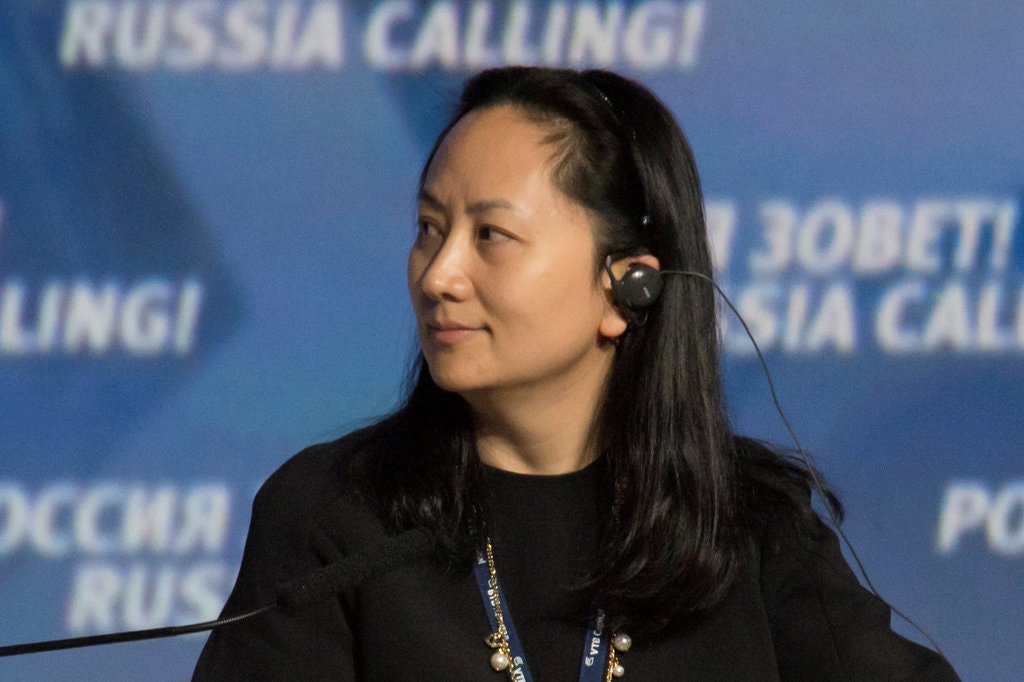
Meng Wanzhou, CFO of Huawei Technologies
Source: www.livemint.com
Meng Wanzhou, daughter of Ren Zhengfei from his first marriage, worked her way up from receptionist in 1993 to become CFO in 2011. Ms. Meng is one of Huawei’s public faces, and in her role of CFO the US government alleges she lied to US banks about the ownership of a company called Skycom. Between 2009 and 2014, Skycom—actually a Huawei front company—circumvented US sanctions against Iran.
In early December, Ms. Meng was arrested while in transit through the Vancouver Airport. She is free on C$10 million bail (and stays in one of two mansions she owns in Vancouver), but is under constant watch and wears an ankle bracelet while her contested extradition case works its way through Canada’s courts. If convicted in the US of “conspiracy to defraud multiple financial institutions,” Meng faces up to thirty years in jail. Meng’s lawyers argue that her detention was politically motivated and part of the ongoing trade dispute between China and the US. (Unhelpfully, president Trump later said that he’d consider intervening in her case if it helped secure a better trade deal.)
China responded by arresting two Canada citizens on espionage charges, holding former diplomat Michael Kovrig and businessman Michael Spayor in secret prisons where the two men have had limited access to embassy staff. Efforts by prime minister Trudeau to negotiate on their behalf have been rebuffed.
For too long Republican and Democrat presidents allowed China to not play by the same rules civilized countries adhere to. The Trump administration’s imposition of tariffs, increased military presence in the South China Sea and arrest of a prominent businesswoman signal that the US is fed up with China’s state-sponsored IP theft, unequal trading and investment practices, and mass overseas corporate hacking. It may be one of the best things about the Trump presidency, but it’s still too early to forecast the eventual outcome. In the meantime, Amazon, Costco and Walmart have become more expensive.
CAVEAT EMPTOR: SOUTH AMERICA TRAVEL PITFALLS
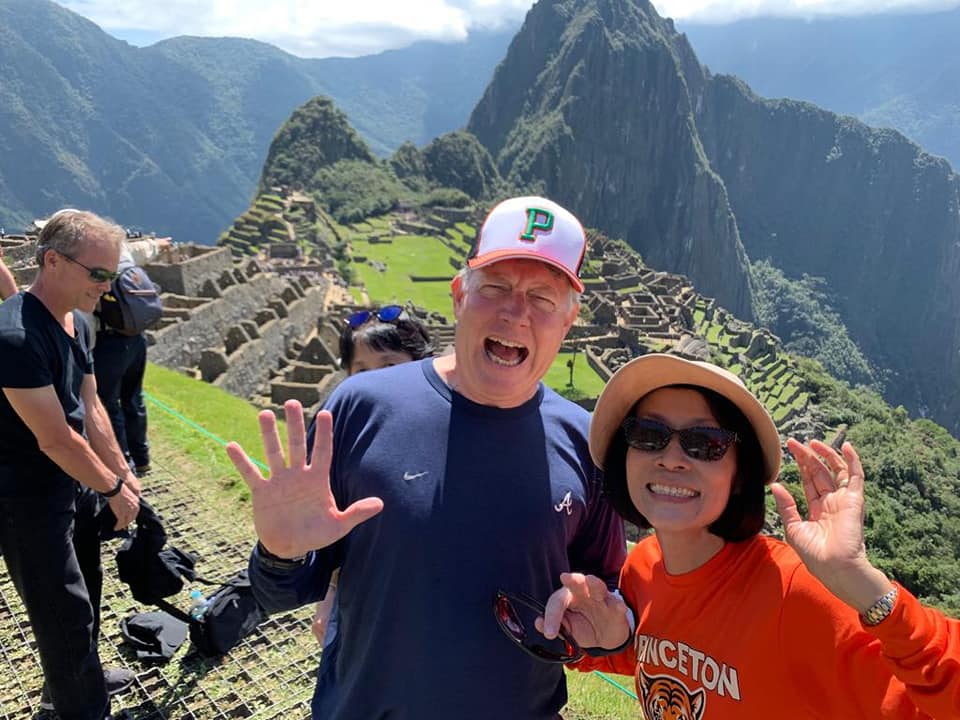
Machu Picchu photo fatigue
Source: Bradley West
Peru, Chile and Argentina are all worth visiting, and each offers something different. Your dollars, pounds and Euros go a long way. Violent crime is low and the locals like gringos. You don’t even need a lot of Spanish. If you like the Incas, or to drink wine and eat Italian food, and/or beef, then South America becomes a must-do trip.
Uber saved us a lot of money, but could end up costing you some, too
Tourists tired of being driven circuitous routes by metered cabs can use Uber (or local equivalents you can access via downloadable apps) for a fixed price. You need to make two modifications, one being the addition of “Cash” as a payment method to your account, and the other a willingness for someone to ride in the front seat (to disguise the Uber usage). A problem arises if the driver collects your cash and charges your credit card for the same trip. This happened only once out of maybe twenty-five Uber trips, but it was a doozy: a US$88 fare from Valparaiso to Santiago, Chile. Fortunately, I thought the driver acted funny and got onto Uber within thirty minutes. I had a refund to my card within an hour.
Another internet-based driver scam was on our last ride of the trip, an Uber to Buenos Aires’ international airport. I’d agreed a price on screen and booked the trip, but the Uber driver canceled the trip about the time he picked us up and I never checked my phone. It was a long ride and our driver fiddled with his phone. When we reached the airport, the fare shown on his phone had increased by 30% as he’d created a fictitious bid. I said that his price wasn’t what we’d agreed and opened the Uber app to prove it to him . . . only to find that the trip had been cancelled and no pricing information remained. It only cost us $8 more, but it’s something to watch out for.
Air travel is out of this world
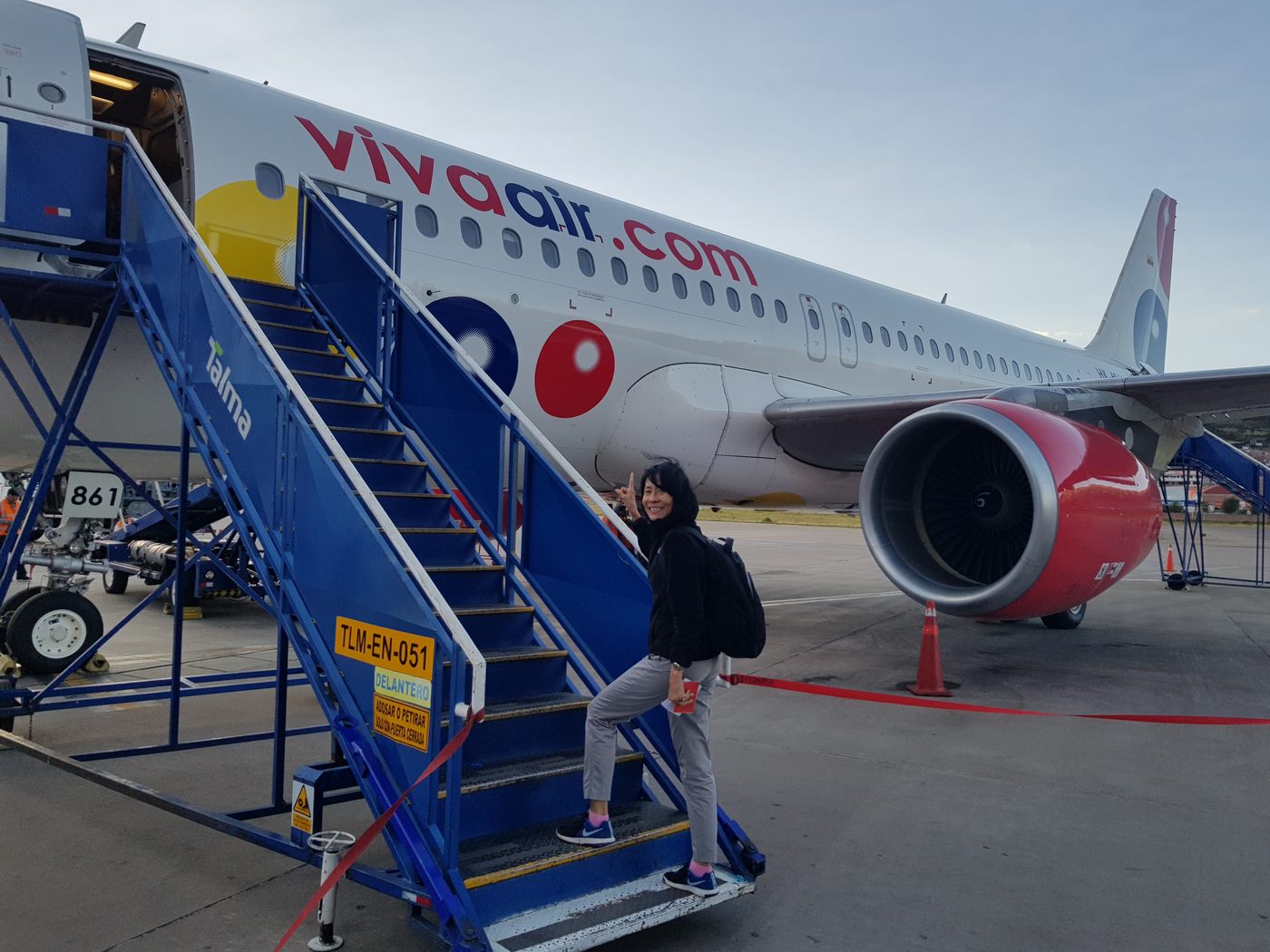
Mrs. West chartered the flight from Cuzco to Lima
Source: Bradley West
The spirit of adventure is alive and well in South America’s aviation industry. Departure gates are subject to unannounced changes up to fifteen minutes before scheduled departure. One of our carriers cancelled our flight thirty-six hours before we were scheduled to fly because of a general strike in Argentina announced for our travel day. Fortunately, I managed to reach a real person at Priceline and she obtained a refund via the airline. Our private car tour around Rio had been booked via TripAdvisor, so we cancelled more than twenty-four-hours in advance without mishap. Bookings.com also reimbursed a supposedly non-refundable three-night hotel stay, so kudos to them, too. So, while we didn’t make it to Rio de Janeiro, the lost leg didn’t cost us anything out of pocket.
Like everywhere else, what you pay to fly around South America is a function of booking lead-times, endurance and stealth measures. Potentially large savings comes from using Incognito mode in Chrome to search for airfares on one computer, and then logging onto another computer as yourself to book the flights once you’ve decided: otherwise you’ll find the quoted fares could increase ten-to-fifteen percent when you revisit the website after concluding your comparison shopping.
We ended up with four flights booked, with the JFK-Lima-JFK ticket a standalone, a six-stopper on Latam for the bulk of our vacation, and then two side round trips (one to Cuzco and one to Rio). When I booked the big Latam circuit, online the airline gave my wife and me two free pieces of luggage for every sector except the last one (in this case, Buenos Aires to Lima). Try as I might, I couldn’t find a place on Latam’s website to pay for checked bags in advance. I shrugged and figured we’d take care of it at the airport. Ho, ho, ho! Latam socked us for US$80 per checked bag for our four bags . . . so our “free” luggage around South America turned out to be a backend loaded $13/bag (more or less) per sector.
Pay attention when you are checking in online. Latam’s flight schedulers decided that our 12:05 flight from Buenos Aires was actually departing at 10:40 the same day . . . and they didn’t bother to email (much less call) to tell us beforehand. We arrived at the check-in counter about the time the flight closed with security and immigration still to navigate. I’ve spent over thirty-five years in Asia airports, but this was the first time I experienced an unannounced departure acceleration. It took forty-five minutes, but Latam eventually rebooked us for free on a later flight that allowed us to make our long-haul connection out of Lima. If I’d paid more attention when I printed our boarding passes, I might have avoided two hours of airport drama.
Cash is (still) King
Money changers have a checkered reputation: some give you a rotten rate, and some are hard to find. But you are still better off carrying hard currency and locking the excess in your suitcase or room safe, and changing a portion as needed. ATM fees range from US$5 to $11 per withdrawal, and in Argentina the most you can withdraw at one time is $88 worth of pesos against an $11 transaction fee.
Credit card cloning and fraud are sufficiently common that we used our cards only in hotels or at good restaurants. Everywhere else, we paid cash. The people, sites, food and drink more than compensated for the hassles described above. After all, part of the adventure lies in the uncertainty. If everything was same, there’d be no reason to ever leave home, and where would be the fun in that?
